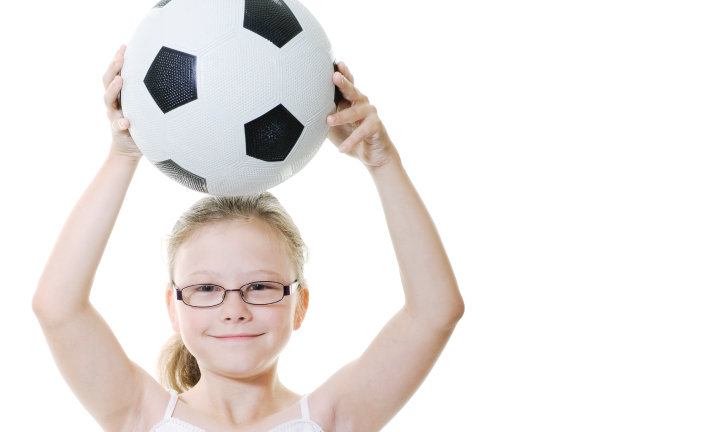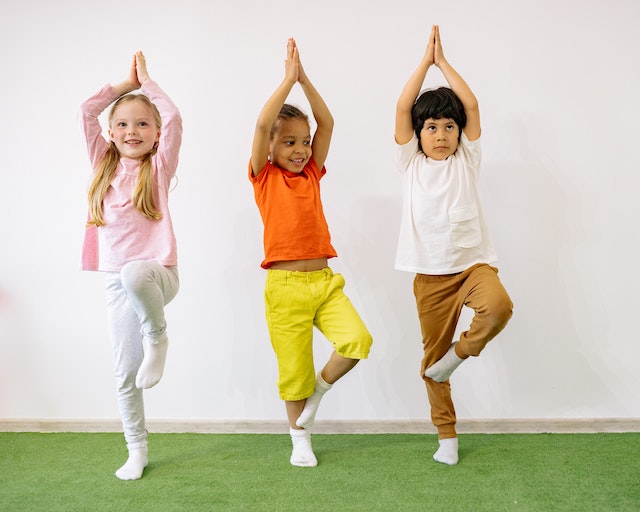It’s never too early to start getting kids moving. Physical activity is the cornerstone of a healthy lifestyle, and kids can reap the benefits at any age. But how do you get your children moving?
Here are some tips from the experts on how to help your child become physically more active:
1. Get creative and make it fun
There are many ways for kids to get moving that don’t involve traditional sports and games — try dancing, yoga, and tai chi classes; swimming lessons; riding bikes; gardening; Frisbee tossing; building forts out of blankets and chairs; playing tag; walking home from school instead of taking the bus or carpooling with friends; climbing trees; playing kickball or other backyard games like hopscotch. Learning martial arts is also great for kids to learn discipline, focus, and self-control. It can also be a great way for kids to build confidence and have fun!
There are different karate uniforms for sale, the most common gear that any karate student would need. After, enroll them in martial art classes. Also, don’t force your kids into exercising; instead, turn it into an activity they enjoy doing on their own accord. If they see it as something fun and exciting rather than something stressful or tedious that they’re forced into doing by an overbearing parent (or two), then they’ll be more likely to stick with it over time and continue performing well at school or work.
2. Stick to a routine
Sticking to a routine helps kids get into the habit of doing something physical daily. The routine doesn’t have to be complicated. It may involve taking the dog for a walk, playing catch with the kids in the backyard, or riding bikes around the neighborhood. It’s important that parents set an example for their children by being active themselves. This will help them understand how important it is to do regular exercise and will show them how fun it can be!
3. Limit screen time
This is the most important thing you can do as a parent to help your child become physically active. It may seem obvious, but it’s important because research has found that too much screen time can interfere with a kid’s appetite for exercise. You should set limits on how much time your child spends on video games and other electronic devices, such as televisions or computers (unless they’re being used for educational purposes). Ideally, your child should have no more than one hour per day of screen time — and even less if possible.
4. Be a good role model
Kids learn by watching their parents, so if you want them to be active, be yourself. If you are overweight, your kids are also more likely to be overweight. If you exercise regularly and eat healthy foods, your kids will follow your example. Set aside time to engage in physical activity with your children.
Walk with them or play catch or tag in the backyard. Ride bikes together on weekends or after school. Invite them to join you when you go for walks at the park or exercise at home. Show them that physical activity is fun and enjoyable, not a chore or a punishment for doing something wrong.
5. Engage them in more outdoor activities
Playground equipment is a great way to get your kids active. If you have access to a park, take advantage of it! If not, find an open field or just a patch of grass in your neighborhood and let them run around. If your child isn’t interested in running outside on their own, you can make it more fun by playing tag or hide-and-seek. As a bonus, children tend to eat less when they are active and burning calories.
When you vacation, consider renting bicycles instead of taking cabs or walking. Even if the weather isn’t perfect, most cities have bike paths perfect for riding with children. Or if you have older children who are into sports like basketball or soccer, look into joining a local team.
Bottom Line
Children who do not exercise regularly are more likely to be inactive adults and ultimately less healthy. If you need help getting your child interested in physical activity, check out this guide for some great motivational tips.


Pingback: Beginner's Guide To Nature-Based Learning
Pingback: 8 Ways To Live A Healthy And Happy Lifestyle